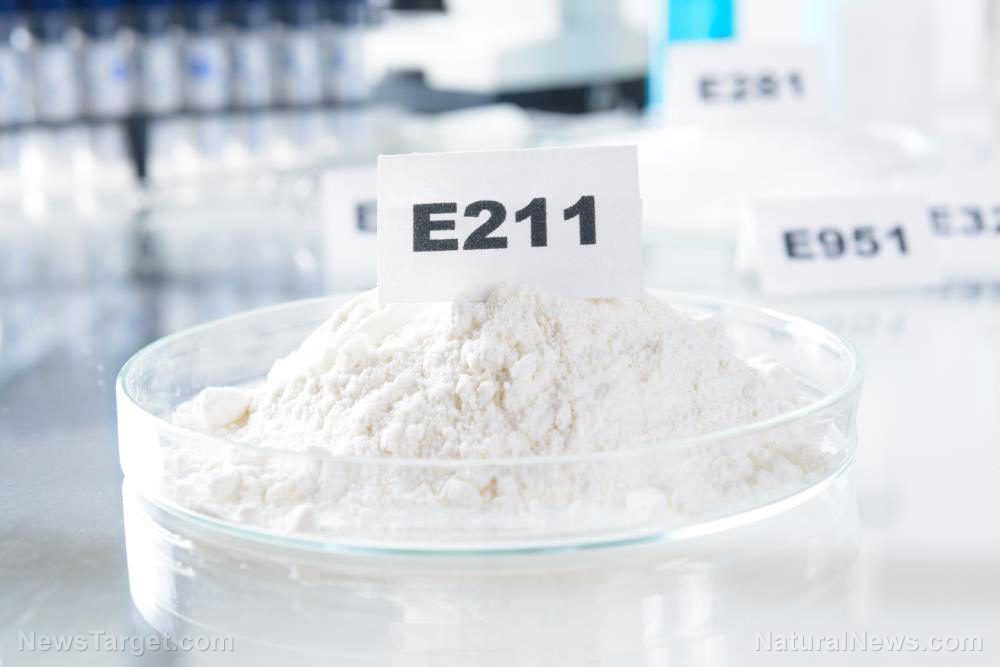Flavorings, sweeteners and dyes in junk food tied to early death, major study warns
09/10/2025 / By Cassie B.

- A shocking new study proves five toxic food additives in ultra-processed foods dramatically increase early death risk.
- Even small amounts of artificial flavors, colors, sweeteners, and enhancers like MSG raise mortality by up to 24%.
- Regulators like the FDA still allow these chemicals despite overwhelming evidence linking them to obesity, diabetes, and cancer.
- Ultra-processed foods now cause nearly 14 percent of all premature U.S. deaths, which amounts to 124,000 preventable tragedies yearly.
- The only defense is cutting out processed junk and returning to whole, real foods to reclaim your health and longevity.
The silent killers hiding in your pantry have finally been exposed as a groundbreaking study reveals that toxic additives in ultra-processed foods are cutting lives short across the globe.
Researchers from the UK Biobank tracked nearly 187,000 adults for 11 years, analyzing their diets and mortality rates. The findings, published in eClinicalMedicine, are alarming. Five key additive categories — flavors, flavor enhancers, coloring agents, artificial sweeteners, and certain sugars — were strongly linked to higher all-cause mortality. And the more of these chemicals people consumed, the greater their risk of an early death.
The toxic five: which additives are the worst?
The study identified five ultra-processed food additives that posed the greatest threat:
- Flavors – When these made up 40 percent of a person’s diet, their mortality risk jumped by 20 percent compared to those who consumed only 10 percent.
- Coloring agents – At 20 percent of diet, the risk spiked by 24 percent compared to just three percent.
- Artificial sweeteners (acesulfame, saccharin, sucralose) – A 20 percent intake led to a 14 percent higher death risk than none at all.
- Flavor enhancers (like MSG) – Even small amounts (two percent of diet) increased risk by seven percent.
- Certain sugars (fructose, maltodextrin, lactose) – A 10 percent intake raised mortality risk by 10 percent.
The study also found that when UPFs made up more than 18 percent of a person’s diet, their death risk began climbing, reaching 19 percent higher at 50 percent intake.
Why are these additives so dangerous?
These chemicals aren’t just empty calories; they disrupt metabolism, alter gut bacteria, and trigger inflammation, leading to obesity, diabetes, and heart disease. Artificial sweeteners, for example, have been shown to confuse the body’s natural hunger signals, causing overeating and weight gain. Synthetic colors have been linked to cancer, ADHD, and behavioral disorders in children.
Yet, despite the mounting evidence, Big Food and regulatory agencies continue to downplay the risks. The FDA and UK’s Food Standards Agency still allow these additives in our food supply, even as studies like this one prove they’re slowly poisoning the population.
The global UPF epidemic
This isn’t just a British problem. In the U.S., more than half of all calories consumed come from ultra-processed foods, according to the CDC. A separate study in the American Journal of Preventive Medicine estimated that UPFs contribute to nearly 14 percent of all premature deaths in the U.S. — that’s 124,000 preventable deaths per year.
And it’s not just adults who are at risk. A 2024 study in Nutrients found that teens who eat high amounts of UPFs suffer from higher rates of depression, anxiety, and behavioral issues. The chemical cocktail in these foods is rewiring young brains while setting them up for a lifetime of chronic disease.
What can you do to protect yourself?
The solution is simple: cut out the junk. The American Heart Association recommends a diet rich in whole foods—vegetables, fruits, nuts, seeds, lean proteins, and whole grains — while minimizing processed snacks, sugary drinks, and ready meals.
But in a world where Big Food spends billions marketing toxic sludge as “convenient” and “delicious,” making the switch isn’t always easy. Here’s how to start:
- Read labels. If you see artificial flavors, dyes (Red 40, Blue 1), sweeteners (aspartame, sucralose), or hydrogenated oils, put it back.
- Cook from scratch. Even small changes, like making your own salad dressing instead of buying bottled varieties, reduce additive exposure.
- Avoid “diet” and “low-fat” traps. These products are often loaded with artificial sweeteners and chemical fillers to compensate for removed fat or sugar.
The food industry has turned our grocery stores into chemical war zones, and regulators are failing to protect us. If you want to live a long, healthy life, you have to take control of what you eat.
Sources for this article include:
Submit a correction >>
Tagged Under:
additives, artificial sweeteners, clean food watch, Dangerous, food science, food supply, grocery, health science, mortality, poison, real investigations, research, stop eating poison, toxic chemicals, toxic ingredients, toxins
This article may contain statements that reflect the opinion of the author
